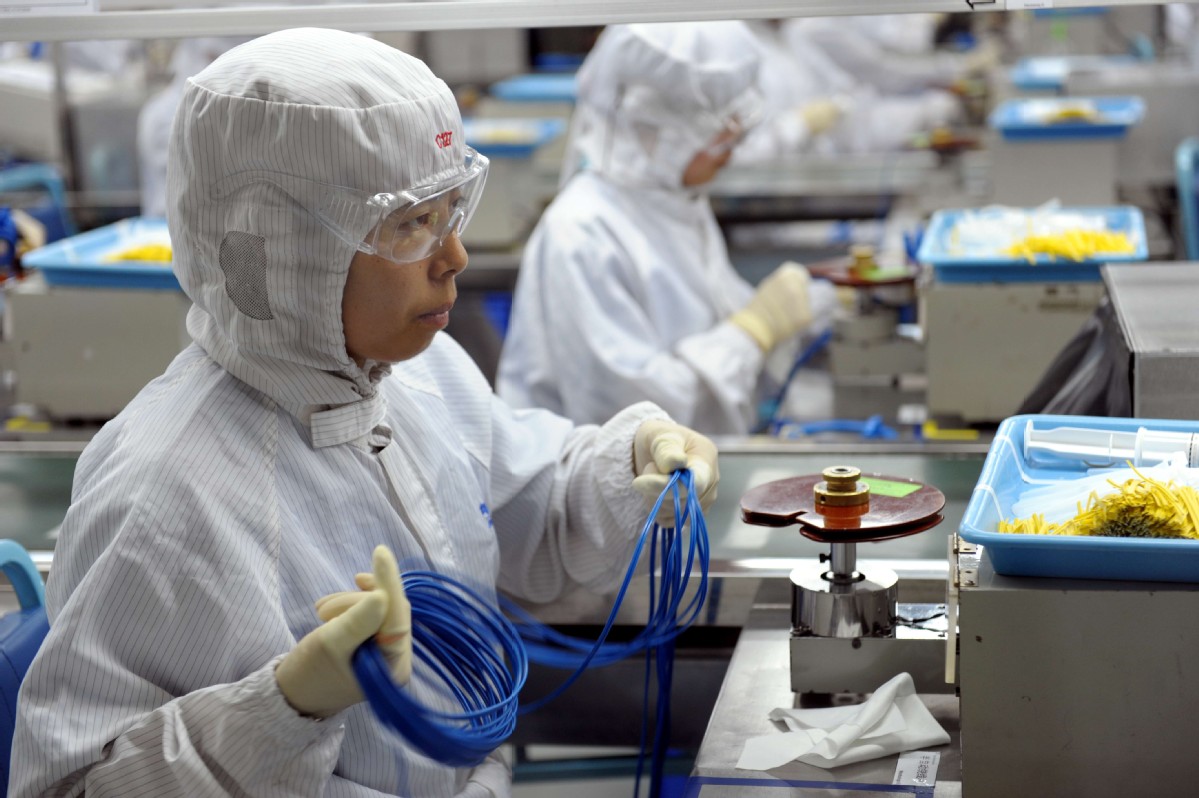MNCs moving full steam ahead


Shanghai adopts prompt steps to help businesses get back to work
Even during the peak of the novel coronavirus outbreak, the Shanghai plant of German chemical giant Covestro has kept operating all along. The company's integrated site in Shanghai, the largest of its kind worldwide, churns out raw materials used for producing epidemic-prevention supplies such as protective goggles, spandex fiber mask straps and medical adhesives.
Designated by local authorities as a key supplier of epidemic-prevention materials, Covestro originally faced the pressing dilemma of needing to maintain full-capacity manufacturing amid a potential workforce and raw materials shortage sparked by logistics restrictions meant to prevent further spread of the outbreak.
By reaching out to the Administration Committee of the Shanghai Chemical Industry Park, the company obtained transportation permission around the production region the very next day, and in two days' time, received authorization allowing its vehicles hassle-free access across provinces from the Shanghai Municipal Economic and Informatization Commission.
"The stunning speed is inseparable from the government's support to help companies normalize operations," said Holly Lei, president of Covestro China.
Lei cited measures including a 28-point circular in Shanghai to revive business and a suite of policy waivers to smooth transportation within the Yangtze River Delta region, all of which "are huge, positive boons to our business".
Following the central authorities' portfolio of incentives to mitigate impacts of the outbreak, local authorities at all levels are taking prompt steps to infuse confidence and help businesses get back to work.
Reggie Lai, vice-president and general manager of TE Connectivity China, said his company and clients are beneficiaries of nuanced policies and responsive government officials at the Suzhou Industrial Park.
"I've submitted our urgent request for earlier resumption of work via WeChat (a popular messaging tool), and officials began proceeding with the case within the blink of an eye," Lai said.
Following swift on-site inspections-thorough examinations of required documents and a subsequent modification-one of TE's subsidiaries in Jiangsu province, which supplies materials for the production of medical equipment, managed to resume operations "at a much faster pace than anticipated", he said.
"The policies are prompt, clear and preemptive, which reflect a mature and systematic governance model that the government has always been pursuing," said Jiang Hao, global partner of consultancy Roland Berger.
Apart from cutting red tape and accelerating administrative approvals, governments at all levels have addressed personnel, management needs and corporate financial problems.
French pharmaceutical giant Sanofi stood to benefit from a directive by the Beijing Economic-Technological Development Area, which detailed 10 policies from catering, transportation, new market opportunities and stabilized employment to bolster growth.
"We are impressed by a manual containing the latest policy updates," said He Guoling, general manager of Sanofi (Beijing) Pharmaceuticals Co Ltd. "Our company has enjoyed a number of perks from accommodation arrangement to the provision of masks."




































